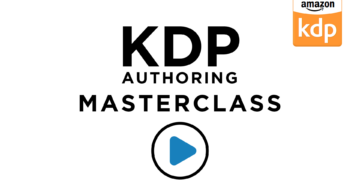Confidence is a powerful trait that can significantly impact every aspect of your life, from your career to your relationships and overall well-being. While some people seem naturally confident, it’s important to understand that confidence is a skill that can be developed and nurtured over time. In this article, we’ll explore practical steps to help you become more confident in various areas of your life.
- Self-awareness and self-acceptance
Confidence begins with self-awareness and self-acceptance. Take the time to understand your strengths and weaknesses. Embrace your flaws and imperfections, as they are a part of what makes you unique. Self-acceptance is the foundation upon which confidence is built.
– Book Recommendation: “The Gifts of Imperfection: Let Go of Who You Think You’re Supposed to Be and Embrace Who You Are” by Brené Brown.
– Synopsis: Brené Brown’s book explores the importance of embracing vulnerability and imperfection as a path to authenticity and self-acceptance.
- Set realistic goals
Setting achievable goals is crucial for building confidence. Break down your larger objectives into smaller, manageable steps. When you accomplish these smaller tasks, you’ll gain a sense of accomplishment that boosts your confidence.
- Book Recommendation: “Smarter Faster Better: The Secrets of Being Productive in Life and Business” by Charles Duhigg.
- Synopsis: Charles Duhigg’s book offers insights into setting and achieving goals effectively, which is essential for boosting confidence.
- Knowledge is power
Confidence often comes from knowledge. Whether it’s in your professional or personal life, invest time in learning and acquiring skills. The more you know, the more confident you’ll feel when facing challenges.
- Book Recommendation: “Mindset: The New Psychology of Success” by Carol S. Dweck.
- Synopsis: Carol Dweck’s book explores the concept of fixed and growth mindsets and how adopting a growth mindset can lead to greater confidence through learning and development.
- Positive self-talk
Your inner dialogue plays a significant role in your confidence level. Challenge negative thoughts and replace them with positive affirmations. Instead of saying, “I can’t do this,” say, “I’ll give it my best shot.” Over time, positive self-talk can rewire your mindset.
- Book Recommendation: “The Power of Positive Thinking” by Norman Vincent Peale.
- Synopsis: Norman Vincent Peale’s classic book offers techniques and strategies for cultivating a positive mindset and self-talk to enhance confidence.
- Body language and posture
Your body language can convey confidence even when you don’t feel it. Stand tall, make eye contact, and offer a firm handshake. Practicing good posture not only makes you appear more confident to others but can also boost your self-esteem.
- Book Recommendation: “Presence: Bringing Your Boldest Self to Your Biggest Challenges” by Amy Cuddy.
- Synopsis: Amy Cuddy’s book delves into the power of body language and how confident posture can positively impact your self-esteem and interactions with others.
- Step out of your comfort zone
Growth and confidence often lie just beyond your comfort zone. Challenge yourself by trying new experiences, taking on new responsibilities, or engaging in activities that scare you a little. Each small step outside your comfort zone builds confidence.
- Book Recommendation: “Feel the Fear and Do It Anyway” by Susan Jeffers.
- Synopsis: Susan Jeffers’ book provides guidance on confronting fear and taking action, making it easier to step out of your comfort zone and build confidence.
- Learn from failures
Failure is a natural part of life. Instead of dwelling on failures, view them as valuable learning experiences. Analyze what went wrong and how you can improve. This resilience in the face of setbacks will enhance your confidence.
- Book Recommendation: “Mindset: The New Psychology of Success” by Carol S. Dweck (mentioned earlier).
- Synopsis: This book emphasizes the importance of a growth mindset, which sees failure as an opportunity for learning and growth.
- Practice assertiveness
Assertiveness is the balance between passive and aggressive behavior. Learning to express your needs and opinions respectfully can boost your confidence and improve your communication skills.
- Book Recommendation: “Assertiveness: How to Stand Up for Yourself and Still Win the Respect of Others” by Judy Murphy.
- Synopsis: Judy Murphy’s book offers practical advice and techniques for developing assertiveness skills to boost confidence in communication.
- Surround yourself with positivity
The people you spend time with can greatly influence your confidence. Surround yourself with supportive, positive individuals who uplift you and believe in your abilities.
- Book Recommendation: “The Four Agreements: A Practical Guide to Personal Freedom” by Don Miguel Ruiz.
- Synopsis: Don Miguel Ruiz’s book explores four agreements that, when practiced, can create a more positive and uplifting environment around you.
- Celebrate your successes
Acknowledge and celebrate your achievements, no matter how small they may seem. This positive reinforcement reinforces your self-worth and boosts your confidence.
- Book Recommendation: “The Happiness Advantage: How a Positive Brain Fuels Success in Work and Life” by Shawn Achor.
- Synopsis: Shawn Achor’s book highlights the importance of celebrating small successes and maintaining a positive outlook to increase confidence and overall happiness.
- Seek professional help
If you struggle with low self-esteem or confidence that significantly impacts your life, consider seeking help from a therapist or counselor. They can provide strategies and guidance tailored to your specific needs.
- Book Recommendation: “The Gifts of Imperfection: Let Go of Who You Think You’re Supposed to Be and Embrace Who You Are” by Brené Brown (mentioned earlier).
- Synopsis: Brené Brown’s book also addresses the importance of seeking support and vulnerability as key aspects of self-acceptance and growth.
The Proven Process of Taking Small Gradual Steps to Build Confidence for Greater Challenges
Confidence is like a muscle that can be strengthened over time through consistent effort and practice. One effective approach to building confidence is by taking small, gradual steps that progressively prepare you for more significant and challenging endeavors. This process is often referred to as the “confidence staircase,” where each step builds upon the last, gradually increasing your self-assuredness. Here’s a closer look at how this process works:
- Identify Your Starting Point: Begin by identifying your current comfort level and skill set. What are you already confident in? What areas make you feel uncertain or anxious? This initial assessment will help you determine where to start.
- Set Realistic Goals: Once you’ve identified your starting point, set realistic and achievable goals. These should be small enough to feel manageable but challenging enough to push you slightly out of your comfort zone. For example, if you’re trying to improve public speaking skills, your first goal might be to speak confidently in front of a small group of friends.
- Practice and Prepare: With your goals in mind, invest time in practice and preparation. This might involve researching, gaining knowledge, or developing new skills. The more you prepare, the more confident you’ll become.
- Take Action: The next step is to take action and confront your chosen challenge. Start with the small goal you’ve set. It’s normal to feel some nervousness or self-doubt at this stage, but remember that it’s all part of the process.
- Reflect and Learn: After completing a small challenge, take time to reflect on your experience. What went well? What could have been improved? This reflection is valuable for learning and growing. It helps you build confidence by understanding your strengths and areas for improvement.
- Celebrate Successes: Don’t forget to celebrate your achievements, no matter how small they may seem. Acknowledging your successes boosts your self-esteem and reinforces the belief that you can handle more significant challenges in the future.
- Gradually Increase Difficulty: As your confidence grows from successfully tackling smaller challenges, gradually increase the difficulty of your goals. This might mean speaking in front of larger audiences, taking on more responsibility at work, or engaging in more complex tasks.
- Repeat the Process: Continue this cycle of setting goals, taking action, reflecting, and celebrating successes. Over time, you’ll find that your comfort zone expands, and you’re more willing to take on more substantial challenges.
- Seek Support: Don’t be afraid to seek support from friends, mentors, or professionals along the way. Their encouragement and guidance can provide valuable insights and motivation.
- Embrace Failure as a Learning Opportunity: Remember that setbacks and failures are part of the journey. Instead of seeing them as reasons to give up, view them as opportunities to learn and grow. Failure is a stepping stone to greater confidence.
By following this process of gradually increasing the complexity of challenges you take on, you can steadily build your confidence. Each small success serves as a building block, preparing you for more significant and demanding endeavors. With time and persistence, you’ll find yourself confidently facing challenges that once seemed insurmountable, demonstrating the power of this gradual, confidence-building approach.
Here are three examples of how you can use the gradual action method to build confidence in different aspects of life:
- Public Speaking Confidence:
- Step 1: Start by speaking in front of a small group of friends or family in a comfortable, non-judgmental setting. Share a short anecdote or story.
- Step 2: Gradually increase the audience size by speaking in front of a larger group of acquaintances or colleagues. Prepare a brief presentation on a topic you’re passionate about.
- Step 3: Join a local speaking club or group to practice speaking in front of strangers in a supportive environment. Gradually take on more challenging topics and speaking slots.
- Step 4: Seek opportunities to speak at professional or community events. With each successful presentation, your confidence in public speaking will grow.
- Fitness and Exercise Confidence
- Step 1: Begin with a manageable exercise routine at home or in a private space. Start with basic exercises like stretching or yoga to build a foundation.
- Step 2: Gradually transition to a gym or fitness class with a friend or personal trainer for support. Focus on building strength and endurance.
- Step 3: Experiment with different types of workouts, such as group fitness classes or team sports, to challenge yourself further. Set achievable fitness goals.
- Step 4: Participate in organized events like 5k runs, cycling races, or obstacle courses. Completing these challenges will boost your fitness confidence.
- Career Advancement Confidence:
- Step 1: Start by setting small career-related goals, such as improving a specific skill or networking with colleagues. Take on low-stakes projects.
- Step 2: Seek opportunities to take on more significant responsibilities at work, such as leading a small project or volunteering for tasks outside your usual role.
- Step 3: Attend industry events or conferences to network and gain exposure in your field. Share your knowledge and experiences with peers.
- Step 4: Aim for more ambitious career goals, such as seeking a promotion or exploring new career paths. By gradually taking on challenges and expanding your professional comfort zone, you’ll build confidence in your career advancement abilities.
In each of these examples, the gradual action method involves starting with small, manageable steps and progressively increasing the level of challenge. This approach allows you to build confidence through repeated successes and gradual exposure to more significant tasks or situations. Over time, you’ll find that your confidence grows naturally as you expand your comfort zone and develop the skills and mindset needed to succeed in these areas of life.
Conclusion
Becoming more confident is a journey that requires patience and consistent effort. Remember that confidence is not a destination but a lifelong skill to be developed and nurtured. By practicing self-awareness, setting realistic goals, challenging negative self-talk, and stepping out of your comfort zone, you can steadily build the confidence you need to achieve your goals and lead a more fulfilling life. Start today and watch your confidence grow.























